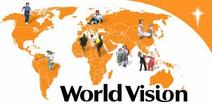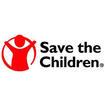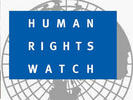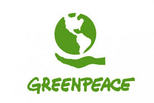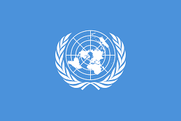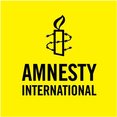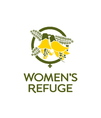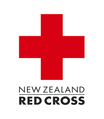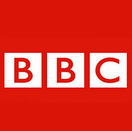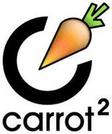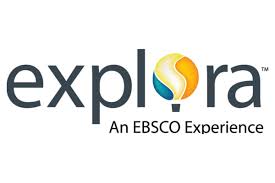Welcome to your 'Making a Difference' OR 'Having a Say' page
to support you with your assessment task.
Here you will find a collection of resources for you to use in your research.
You will need to use a variety of resources to complete this assessment task. This includes both print resources (printed books, journals, articles) and digital resources (web searches, databases, online encyclopaedias). Print resources have already had their credentials checked when they go through the editing process so the information is all ready to be used. This makes them a useful tool in the search for information as you can use these resources without wondering if the information is actually correct!
CHSLibrary staff have curated (brought together) some print resources for you which are held at the Library Desk for you to use. Your teacher may borrow these on behalf of the class or send you over to use them. Please ask if you are unsure where these books are located - Library Staff are here to help. :) Click here for the Library CATALOGUE and type "Organisations that help" into the search box for a list of titles.
CHSLibrary staff have curated (brought together) some print resources for you which are held at the Library Desk for you to use. Your teacher may borrow these on behalf of the class or send you over to use them. Please ask if you are unsure where these books are located - Library Staff are here to help. :) Click here for the Library CATALOGUE and type "Organisations that help" into the search box for a list of titles.
Please add this Chrome extension to your device to enable easy referencing.
Universal declaration of Human Rights video:
Task 1: Choosing an Organisation
As well as looking at the websites below, sometimes searching newspapers like Stuff and NZ Herald can give you an idea about some of the issues around Human Rights and how this relates to your organisation. Do a Carrot2 search and look at the Foam Tree result to get a visual overview of what organisations are out there and how much information there is on each of them. Try also Google NEWS to see if they have been in the headlines recently.
Task 2: Your focusing questions
Start by thinking about what you already know and think about some words you could use to search for more information. Wikipedia is good for getting an idea of what your subject is about BUT you will need to use other sites and books for your actual research. Wikipedia does not pass the CRAP test. There are some books at the desk to give you an idea about some of the organisations or you can use the links below. Use this information to help you create your questions. You will need to do more specific research later.
Have a look at the websites below to get an idea of some of the organisations you can choose from ...
Have a look at the websites below to get an idea of some of the organisations you can choose from ...
Task 3: Gathering a range of information
|
Click here for the guiding principles of the Convention for the Rights of the Child
Click here for the International site |
Click here for the American Red Cross site
Click here for the British Red Cross site Click here for the New Zealand Red Cross site |
Use these tools:
|
Search the BBC site for each of the Organisations – Red Cross; Amnesty International; Greenpeace E.g.: Red Cross results in a good article - Red Cross celebrates 150th anniversary
|
Use this Carrot2 searching tool to find information on your chosen Organisation. Click on FOAM TREES to see a picture of your search.
Remember your search strings AND if you want to search for differing viewpoints, add words like: bias or criticism e.g. "Amnesty International" and (bias or criticism) -wikipedia |
Human Rights - list of great resources - really worth a look
|
Use Explora to find information on your chosen Organisation. Ask your teacher or Library staff for the USERNAME and PASSWORD. if you are working from home. it is password-free inside school grounds.
|
|
Use this Encyclopedia to find information on your chosen Organisation. Ask your teacher or Library staff for help if you can't access this.
|
Use this database to find information on your chosen Organisation. Ask your teacher or Library staff for help if you can't access this.
|
Use this database to find information on your chosen Organisation. This database also give you articles that may critique your organisations. It is a widget - just type your keywords in and press ENTER.
e.g. Amnesty International search |
Need to assess your organisation from another point of view? Try these ...
|
Try this Charity Navigator tool to see how your charity is 'rated'. E.g. World Vision's rating
|
Try this Charity Watch tool to see an overview of your charity
|
Try this GuideStar tool to see an assessment of your charity. E.g. World Vision's assessment
|
Try this NGO Monitor tool to see an assessment of your charity. E.g. Amnesty International's assessment
|
Primary versus Secondary sources
Here is a definition to help you:
- PRIMARY: Information you collect yourself. For example interviews (phone, email, in person), surveys (5 people or more)
- SECONDARY: will be from the internet, books, magazines etc. This is information you did not collect yourself, others have done it for you and recorded it for you to make use of. You are allowed 0% of this without acknowledgement! You MUST say where you got it from.
Task 4: Recording your resources
The last part, creating a bibliography, is easy. You need to list your resources so that your marker knows where you got your research from.
Use CiteThisForMe as your referencing tool. It uses a Chrome Extension.
Watch the tutorial below and follow the instructions given.
Here is an exemplar bibliography. You will note that the entries are in APA style and are in alphabetic order by first letter of the entry.
Watch the tutorial below and follow the instructions given.
Here is an exemplar bibliography. You will note that the entries are in APA style and are in alphabetic order by first letter of the entry.


